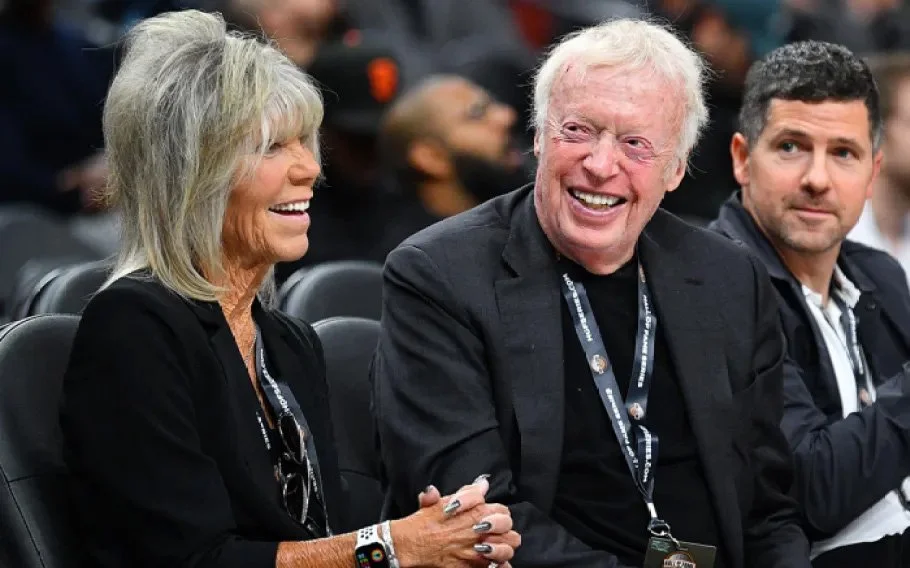The Far-Reaching Impact of Transformational Generosity
What would it feel like to give away $2 billion? Based on their beaming smiles in photos of their philanthropy, Phil Knight, co-founder of Nike, and his wife, Penny, seem very happy. The Knights committed to giving Oregon Health Science University $2 billion that will enable its Cancer Center (AKA the Knight Cancer Institute) to provide increased levels of care and conduct more extensive research.
Phil Knight and his wife, Penny. © Michael Hickey/Getty Images
We shouldn’t be surprised that the Knights look joyful. Paul quotes Jesus in Acts 20:35, noting it is more blessed to give than to receive. A recent research paper in the Current Directions in Psychological Science reviewed fifteen independent experiments and concluded that spending money on other people (giving) can increase happiness. Even small gifts can give you a little boost. I just gave away my Stroopwafel on a United flight to Columbus, and it made me feel happier, too. But it’s quite a leap from passing up my fortieth Stroopwafel this year to giving $2 billion toward cancer care and research. This is a transformational gift that will extend and improve many lives for decades to come.
Most of us can experience the joy of transformational giving if we keep progressing in our generosity journey. While larger gifts are more likely to be transformational, gifts that are magnitudes smaller than the Knights’ can still be transformational to the recipient. Transformational gifts occur in the Bible. Joseph of Arimathea’s giving (or maybe loaning?) his tomb for Jesus’ burial was a transformational gift. Lydia’s support of the church and Barnabas’ gift of land would qualify as transformational gifts to the early church.
What are some of the ingredients of a successful transformational gift?
The gift is strategic and will create a benefit for an extended period of time. It could fund a new international worker or staff member at church, replace the tattered and stained furniture in the church’s high school room, refurbish a cabin at a camp, or transform a college classroom. Often, these strategic gifts will be for projects that are more capital-intensive.
The gift goes beyond normal giving levels, and the donor engages more directly with the recipient. Phil Knight ran track at the University of Oregon and founded Nike with his track coach. He has been engaged with the Ducks ever since and is regularly photographed at sporting events (and you don’t have to be a genius to figure out which shoe brand the basketball team wears). One source estimated that this new commitment will raise the Knights’ total giving to the university to over $4 billion. Transformational givers get closer to their recipients.
The gift can lead to strategic engagement. The doctor who will oversee the Cancer Institute had resigned from leadership in December over concerns about organizational issues. Reading between the lines, the Knights were able to create a structure to lure him back into leadership. When a new pastor starts at a church, donors can do the same thing by giving a targeted gift for the pastor to introduce new ministries or revitalize existing ones. That way, they don’t have to wait until the next budget cycle to start making changes that require a financial investment.
The gift is well-planned. As gifts increase in size, they often become more complex to administer. It might involve giving away appreciated stock, including an organization in your estate, or transferring assets into an account type that blends charity and investing. If you are part of The Alliance, Orchard Alliance is here to serve you. Other denominations or Christian organizations can step in as well. Going through a planning process can clarify how much you are able to give and help determine what God is calling you to give it to.
Don’t miss out on the joy of making a big difference. Your gifts can transform the organization you give to—and also transform you.



